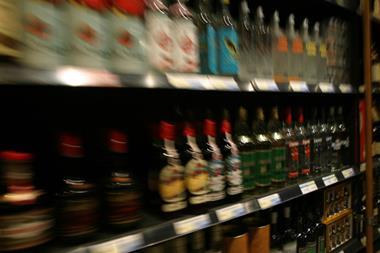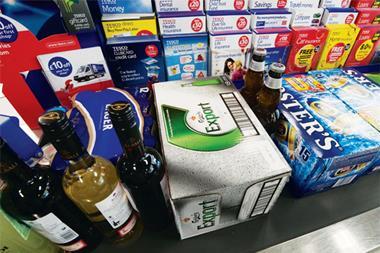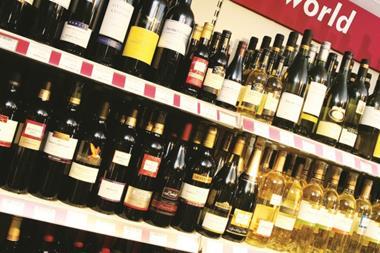Plans in Scotland for a 50p per unit minimum alcohol price may create a more level playing field, but will result in price rises and a minimal effect on alcoholism, retailers have warned.
Supermarket own brands would mainly be affected, with a four-pack of 440ml Tesco Strong dry cider rising by £2.87 from the current cost of £1.80, while Tesco Value vodka 70cl will go up by £4.41 to £13.13.
Galashiels retailer Neil Babbington said the move would create a level playing field with the supermarkets, especially on spirits, but added: “We sell a lot of white cider and I believe these brands will go.”
Dundee retailer John Cuthbertson, whose Premier at the Union store is on a student campus, also predicted that white cider would be priced out of the market. “It won’t stop people drinking, but it will affect students with a limited budget. And there might be opportunity for manufacturers and suppliers to raise prices. Companies will raise prices on premium products to jump on the bandwagon. I’m not sure the retailer will gain.”
Edinburgh Premier retailer Linda Williams said both retailers and the poor would pay the price for the policy. “I accept we have to do something about alcohol in society, but as usual the poor will be hit the hardest.
“We’ll probably have to sell more to make a profit. I imagine premium brands will raise their prices in order to differentiate.”
She also warned that the move would boost internet and cross-border sales, as well as smuggling, “which government is doing nothing to address”.
Neil predicted that pricemarks would disappear with the introduction of minimum pricing as manufacturers raise their prices, and “more people will go to premium brands as it won’t be worth trading down”.
The Scottish government recently agreed to a ‘sunset clause’, which means that the policy will be evaluated after five years and ditched a year later if it does not have parliamentary support.
Your views
“Minimum pricing will drive up illicit, cross-border and internet sales to the detriment of indigenous Scottish retailers, while any profit arising from increased prices would be more than offset by falling sales. Experience tells us that this sort of blunt intervention inevitably punishes the retailer and rarely places any responsibility on the individual.”
John Drummond, Scottish Grocers’ Federation chief executive
“It’s taking a sledge-hammer to a very small nut. It won’t have an affect on alcoholism - people will still drink, whatever the price. Government needs to invest in education. If the purpose was to create a level playing field, it’s a good thing. However, the public will be resentful if the retailer benefits.”
Sid Ali, Nisa Local, Mintlaw, Aberdeenshire




















1 Readers' comment